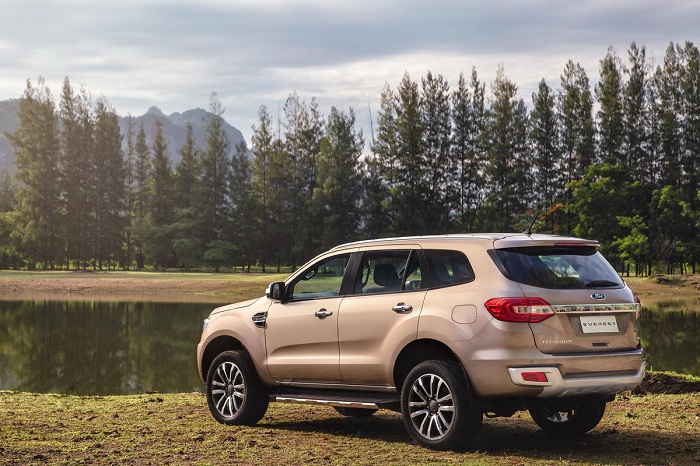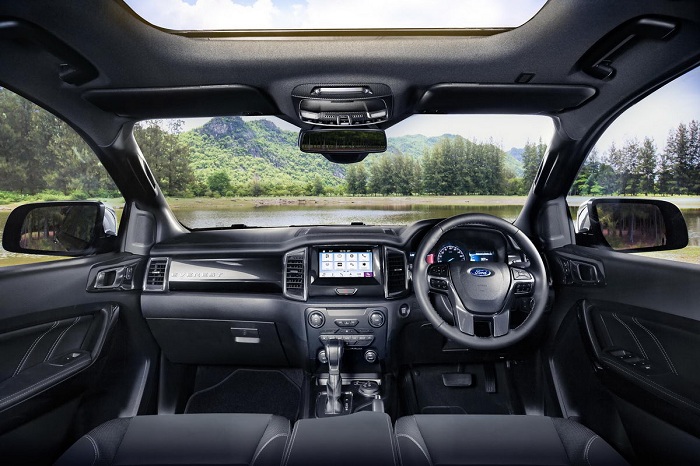Incorporating minor changes outside, the Everest receives a slightly updated grille, redesigned front bumper, new headlights with integrated daytime running LEDs, newly designed alloy wheels and on the inside, Ford’s SYNC 3 infotainment software, keyless entry/start as well as a kick-motion activated tailgate, Autonomous Emergency Braking with Pedestrian Detection and semi-autonomous Park Assist.

As previously indicated, the biggest highlight is the inclusion of the Ranger Raptor’s 2.0-litre diesel engine in single and twin-turbo configurations, the latter set to debut on local soil first in the refreshed Ranger next year.
Replacing the existing 2.2 and 3.2 TDCi mills, the single blower 2.0-litre produces 132kW/420Nm, while the bi-turbo, just like in the Raptor, cranks out 157kW/500Nm. Transmission-wise, the former will be connected to a six-speed automatic gearbox and the latter to the Raptor’s 10-speed automatic co-developed with General Motors.

For other markets such as Australia, the 3.2 and six-speed auto combo will continue to be offered albeit relegated to lower trim levels, with the bi-turbo and 10-speed ‘box serving as the new flagship powertrain.
Competing in a segment that includes the Toyota Fortuner, Isuzu MU-X, Mitsubishi Pajero Sport, Chevrolet TrailBlazer and the all-new Nissan Terra in Thailand, pricing for the four-model Everest range will commence at 1 299 000 baht (R525 003) and top out at 1 799 000 baht (R727 083). A local launch date is yet to be announced.
















